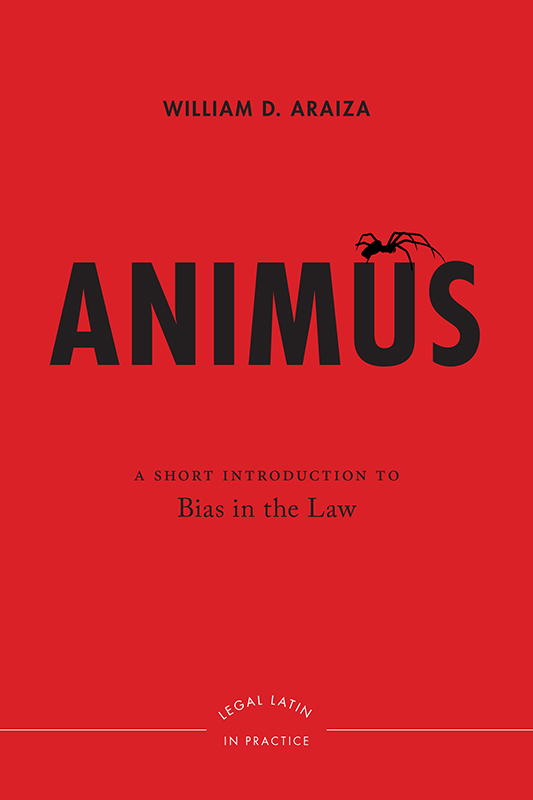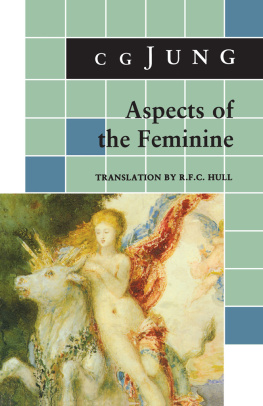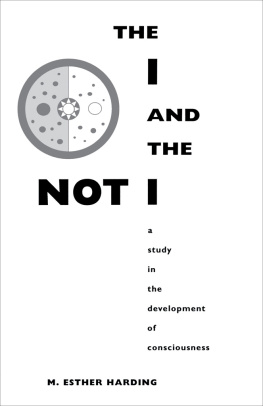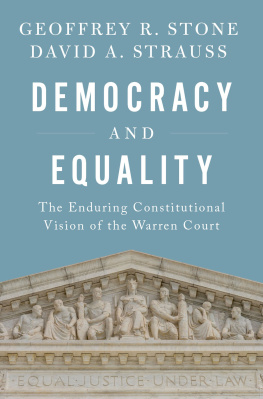
Animus
Animus
A Short Introduction to Bias in the Law
Legal Latin in Practice
William D. Araiza

NEW YORK UNIVERSITY PRESS
New York
NEW YORK UNIVERSITY PRESS
New York
www.nyupress.org
2017 by New York University
All rights reserved
References to Internet websites (URLs) were accurate at the time of writing. Neither the author nor New York University Press is responsible for URLs that may have expired or changed since the manuscript was prepared.
ISBN : 978-1-4798-4603-0
For Library of Congress Cataloging-in-Publication data, please contact the Library of Congress.
New York University Press books are printed on acid-free paper, and their binding materials are chosen for strength and durability. We strive to use environmentally responsible suppliers and materials to the greatest extent possible in publishing our books.
Manufactured in the United States of America
10 9 8 7 6 5 4 3 2 1
Also available as an ebook
For my parents
Contents
One of the many wonderful things about being an academic is that the job description includes, among other tasks, thinking. This book is the result of thinking about the idea of animus and equal protection law more generally.
Of course, turning thoughts into a book requires more. I have been very fortunate to have that something more. Clara Platter, my wonderful editor at NYU Press, encouraged me to write this book from the moment I mentioned the idea; she and her staff have been unfailingly helpful. Nick Allard, dean of Brooklyn Law School, has supported my writing even during my tenure as vice dean. The professional administrative staff at Brooklyn has also helped, through their enormous expertise and skill in managing the various functions of the Law School, which gave me time to think and write. My husband, as always, has supported and encouraged my writing, even when it has meant late dinners and abandoned evenings.
My academic colleagues, both at Brooklyn and elsewhere, also deserve thanks. In writing this project Ive had the benefit of full manuscript reads from both old professional friends (Eric Berger and Joel Goldstein) and new ones (Katie Eyer and Evan Zoldan). Many others have graciously shared their time and insights. Both my husband and Sharon Ben-Meir read the manuscript, to give non-lawyers perspectives. Thanks to all of you.
I also thank my students. Over the last twenty years I have been fortunate to teach class after class of smart, inquisitive minds. They have asked, pushed (politely), wondered, speculated, and made me look at these ideas with fresh eyes over and over again. If this book reflects worthwhile thoughts, it is largely because my students prompted me to think them.
I owe one final set of thanksto my parents. They sacrificed to give my siblings and me the opportunities we enjoyed. If they had not made those sacrifices, this book would not have been written.
Animus, and Why It Matters
Which of these situations is not like the others?
- 1. The federal government requires that persons arriving from foreign nations experiencing dangerous outbreaks of communicable diseases go through special screening before entering the county.
- 2. A state law imposes fines on persons who cross streets without using crosswalks.
- 3. A town council denies a zoning permit for a group home for intellectually disabled persons, in response to complaints from nearby residents that they dont want those kind of people in the neighborhood.
In part, this is a trick question. Each of these situations is unlike the others, for different reasons. Most obviously, they differ based on the level of government (national, state, and local) that is acting and the subject matter of the action (public health, traffic safety, and land use). So in a sense, any answer is correct.
But there is an additional axis on which these situations differan axis that reflects this books topic. The first and second situations respond (at least on their faces) to what we can recognize as legitimate health and safety concerns (respectively, public health and traffic safety). (To be sure, such laws could conceivably be really motivated by something more sinister, a possibility we will consider later in the book.) By contrast, the facts of the third situation identify a different type of motivationnot a concern for some material public good but, instead, what we can identify for now as the publics simple dislike of a particular group. That situation reflects one versionindeed, the most explicit versionof what constitutional law calls animus. Thats the subject of this book.
Why Does Animus Matter?
At one level, asking why animus matters to constitutional law seems silly. After all, if it is a bad thing for private persons to act out of simple dislike of others, then it should be similarly problematic if government does so. And fundamentally thats right. Indeed, that insight might well strike you as not only right but also important. In other words, among the various differences we can identify between those three situations, this latter differencethe fact that situation number 3 reflects government action taken for a bad purposemay strike us as more profound than the differences concerning which legitimate interest the government is seeking to promote or which level of government is acting.
The intuition that improper government purposes constitute an especially problematic feature of some government actions reflects a great deal of embedded constitutional consciousness. Our constitutional tradition requires that government act only in pursuit of legitimate goals promoting the public good. Thats not to say that the Constitution requires that government achieve such goals perfectly. As we know all too well, government often makes mistakes. But it at least has to try. More precisely, government at least has to seek to promote a public purpose. Stopping the spread of a contagious virus, or ensuring traffic safety, surely counts as such a public purpose. Harming people just because a political majority doesnt like them does not.
That last insight helps ground in constitutional history our intuition why animus is wrong. The statesmen who gathered in Philadelphia
The Constitution the framers enacted included many features that sought to limit the ability of factions to act purely in pursuit of their own private goals. For now we do not need to worry about those details. But we do need to recognize two basic truths. First, the concern about factionand by extension, with privately motivated government actionexisted from the very start of our constitutional system. Second, and perhaps paradoxically, it was not until the Fourteenth Amendment, ratified in 1868 as part of postCivil War Reconstruction, that the Constitution gained its most effective tool in combatting such action. In particular, the Equal Protection Clause eventually became understood as a guarantee against the hijacking of governmental power for purely private ends. Such purely private ends include the suppression of a group for no reason other than the fact that the dominant political faction does not like them. Thus the prohibition on animus reflects a core constitutional commitment, one that is most forcefully expressed in the most important constitutional text to have been added since the founding era.
Animus matters more than ever today. At a very practical level, animus has become one of the Supreme Courts favorite tools when considering claims that a plaintiffs equality rights have been violated. As we will see, other approaches to the Equal Protection Clausein particular, the approach that seeks to determine whether discrimination against a particular group is always suspect and thus always merits more careful judicial scrutinyhave largely run out of steam. Emerging groupsthat is, groups whose equality claims have only relatively recently begun to command serious judicial attentionwill likely not benefit from such suspect class analysis. Indeed, the prime example of such an emerging groupgays and lesbianshas won a remarkable string of equal protection victories at the Court over the last two decades. But those victories have not been won based on suspect class analysis. Instead, they have been won in large part because the Court has found animus.
Next page







